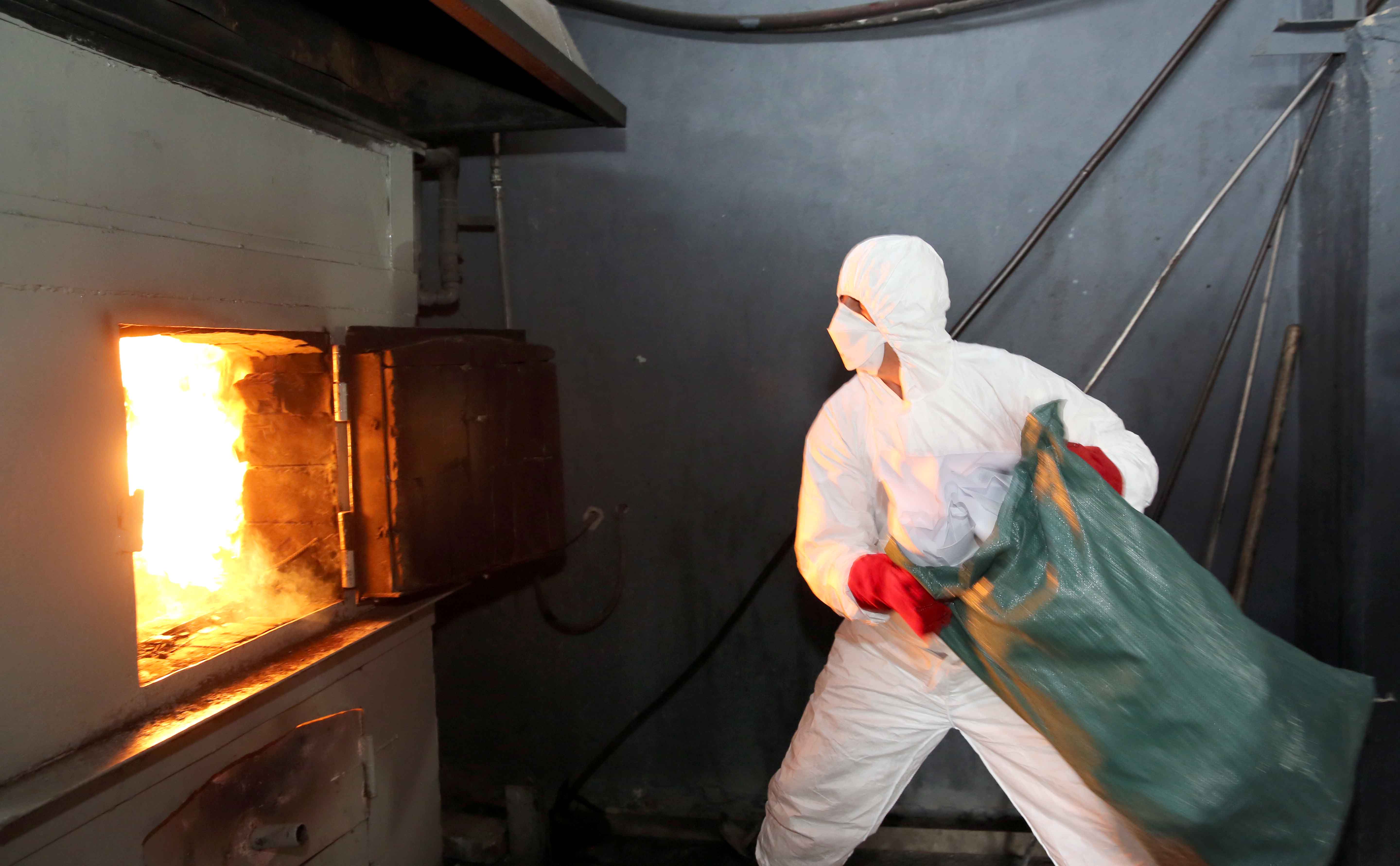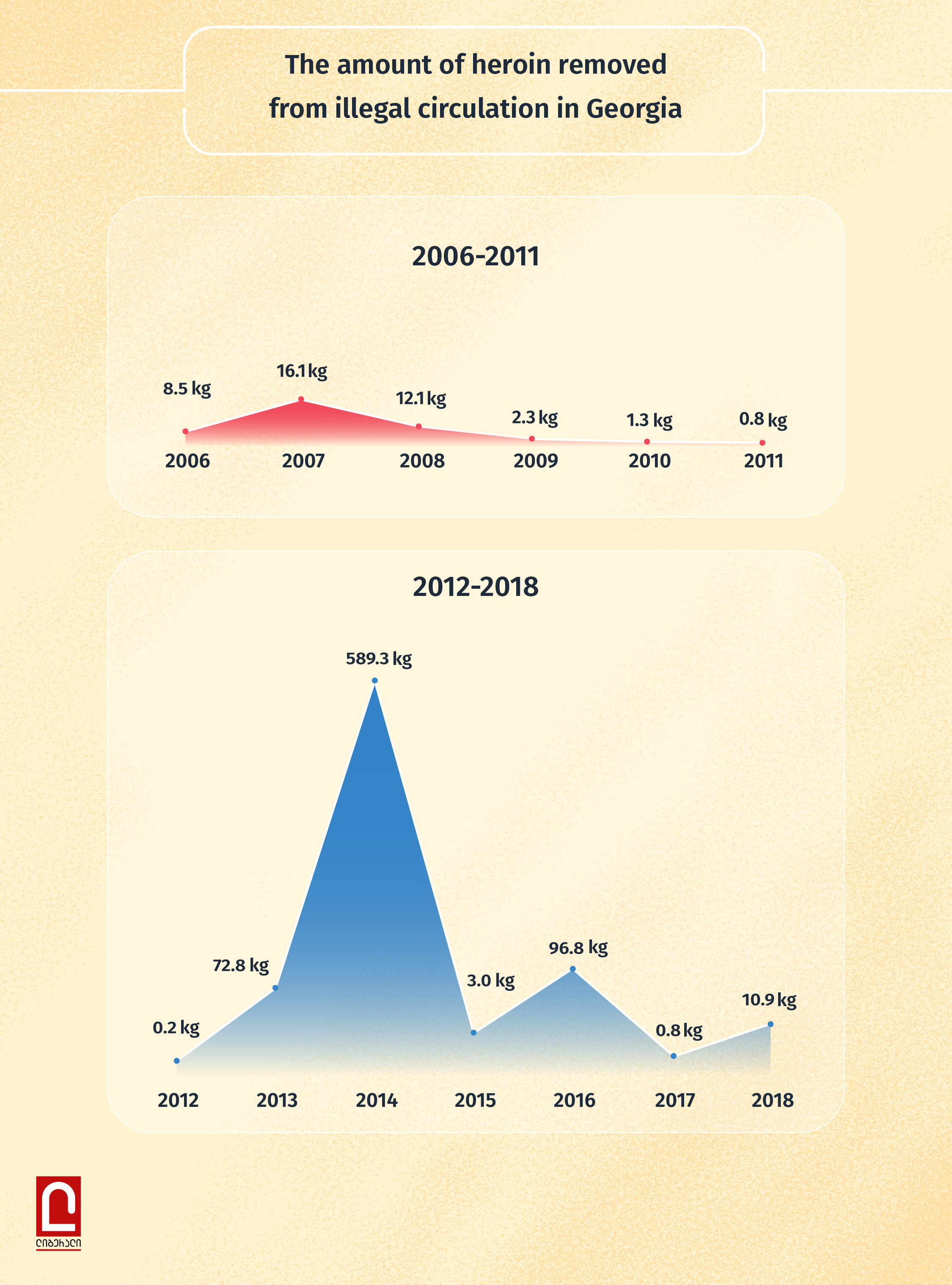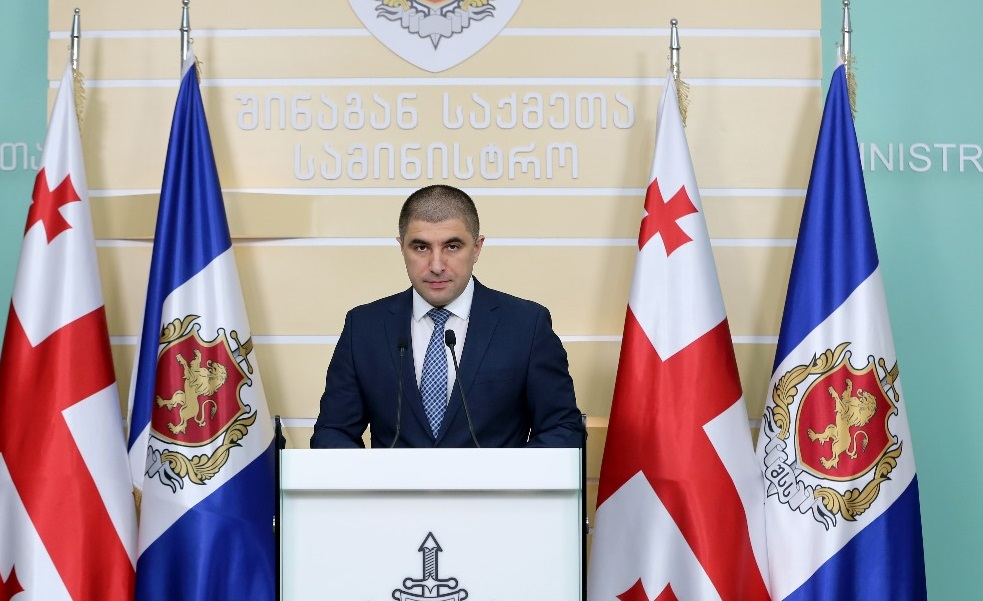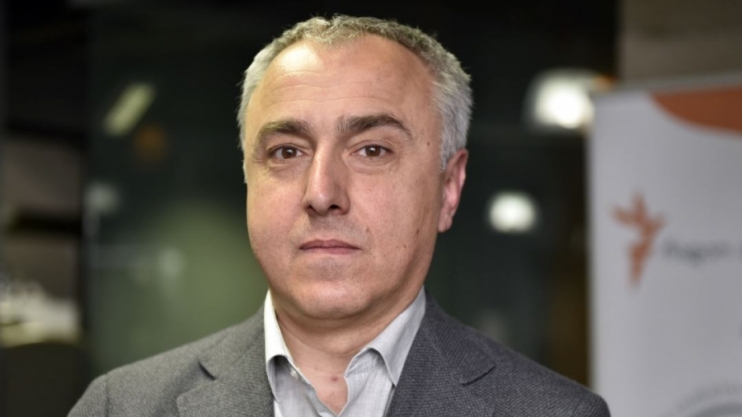

Historically, international reports have referred to Georgia as one of the corridors for the transit of Afghan heroin towards Europe. Liberali tried to find out how Georgia is tackling drug trafficking and what has changed since 2012 under the Georgian dream government.
In September 2009, the United Nations Office on Drugs and Crime published a report on the spread of Afghan heroin around the world.
The report noted that seven tons of heroin reached Europe through Georgia each year. Heroin was shipped to Bulgaria and Romania from the port city of Poti by ferry.
Additionally, 2.4 tonnes of heroin was sold within the country per year. However, the police were only able to seize 18 kilogrammes over the course of two years.
After these high-profile reports were published, Georgia undertook the responsibility to tackle drug trafficking more effectively.
This matter was one of the central issues under the Visa Liberalisation Action Plan.
Liberali decided to assess Georgia’s endeavour to tackle the transit of drugs based on statistical data analysis.
Liberali solicited public information on drugs from several public bodies.
Liberali also studied how Georgia fulfils its obligations on tackling the transit of drugs, which exist under partnerships with international organisations.
One of the subjects of this research was the National Action Plan on Drugs.
Liberali encountered problems when soliciting and obtaining information from public bodies. Specifically, Liberali received incomplete information from some institutions — or did not receive the information altogether. This indicates that certain public bodies do not duly process information — and that some of them fail to issue public information in accordance with the law.
What did Liberali solicit from public bodies?
Liberali solicited public information from four bodies: the Ministry of Internal Affairs, the Prosecutor’s Office of Georgia, the Supreme Court of Georgia, and the Revenue Service. Respective to their competence, Liberali solicited the following information from these institutions:
— The amount of drugs removed from illegal circulation in Georgia since 2012;
— The amount of drugs removed from illegal circulation that were meant to be trafficked since 2012;
— What ways/means/forms were used for the transit of drugs when they were imported/exported/transported internationally via transit;
— Liberali separately asked for information on the amount of drugs seized specifically by the border police since 2012.
In order to determine what types of drugs are imported from which neighbouring country, Liberali solicited the following information from the Revenue Service, which has authority over every customs point in Georgia:
— The drugs seized at every customs point in Georgia since 2012 (indicating year, type of drugs, and the customs point).
As to the information on prosecuted and convicted people, Liberali solicited the following information from the Prosecutor’s Office of Georgia and the Supreme Court of Georgia:
— How many cases of illegal import, export, or international transit of drugs were examined, how many people were investigated, and how many of those were indicted since 2012;
— How many of those indicted were convicted by the court.
Information received from public bodies was scarce and contained only a general overview. The reason for this is that information is not duly processed for statistics: the bodies do not register/sort important circumstances based on which tendencies can be outlined.
Data from the Ministry of Internal Affairs
Liberali solicited information on the amount of drugs and psychotropic substances removed from illegal circulation in Georgia in 2012-2018 (net weight measured in grams).
According to the data provided by the Ministry of Internal Affairs, the most heroin was removed from illegal circulation in 2014 (589,306 grams), followed by 2016 (96,870 grams), and 2013 (72,880 grams). In 2018, law enforcement agencies seized 10,935 grams of heroin.

During these years, cannabis plants led in terms of the volume of drugs seized, followed by harvested cannabis, and hashish.
Liberali also asked the Ministry of Internal Affairs regarding what portion of the drugs removed from illegal circulation in 2012–2018 were intended for transit. The ministry replied that they do not process such information.
Registered crime
Article 262 of the Criminal Code of Georgia establishes liability for the illegal import, export, or international transit of drugs.
According to data from the Ministry of Internal Affairs, from 2012–2018, a total of 1,542 crimes were registered under this article, out of which 1,222 cases were solved.
Data from the Prosecutor’s Office indicates that during those years 1,255 people were prosecuted based on Article 262.
Data of Revenue Service
In order to obtain information on the drugs discovered at Georgia’s state border, Liberali contacted the Revenue Service.
They provided information sorted by 19 border-crossing points.
From 2014–2018, the most cases of drug seizure were registered at the Vale crossing point (233 cases; border with Turkey), followed by Sarpi (209 cases; border with Turkey), Sadakhlo (Motorway) (126 cases; border with Armenia), and Kartsakhi (111 cases; border with Turkey).
In total, from 2014 to the first 10 months of 2018, there were 979 cases of drug seizure at 19 border-crossing points.
It should be noted that although Liberali asked for information, including the volumes and types of drugs seized, the letter sent by the Revenue Service only contained information on the number of cases of drug seizure.
Data of the Supreme Court
According to the Supreme Court, from 2012 to the first 10 months of 2018, the city courts heard 642 cases against 670 people based on Article 262.
Out of the 670 people indicted, 658 were convicted by the courts.
Among those convicted, 435 were sent to prison, while the rest (223 people) were either given a suspended sentence or were fined.
Comparative analysis using the data for the period before 2012
Information on the drugs seized in Georgia before 2012 is included in the 2012 report titled ‘Georgia’s Drug Situation’. The report contains data from 2006.

What does the state do to tackle drug transit?
In order to assess how effectively the state tackles drug trafficking, Liberali contacted the government bodies directly responsible for taking action.
Liberali studied the National Plan for Tackling Drug Addiction — a document listing the measures for 2016-2018. One such measure had to do with decreasing supply. The document contains specific measures in order to decrease the illegal circulation of drugs.
Liberali also solicited a report from the Ministry of Justice and the Ministry of Internal Affairs on how the 2016-2018 Action Plan was fulfilled.
Liberali were told by the Ministry of Internal Affairs that, since the secretariat of the Inter-Agency Coordinated Council on Combating Drug Abuse was being represented by the Ministry of Justice, the Ministry of Internal Affairs provided information to the latter, who ensures that the information was issued in a unified form.
As to the Ministry of Justice, Liberali have not received a reply on solicited information even though the deadline established by law has passed.
The 2016-2018 Action Plan
The 2016-2018 Action Plan sets out various obligations for the Ministry of Internal Affairs. Specifically, the ministry had to prepare/provide additional training for its employees working on tackling the illegal circulation of drugs; develop a cynology service in order to detect drugs, psychotropic substances, and precursors; and enhance the current cynology division of the Customs Department, among others.
Although Liberali have not received detailed information on how the plan was fulfilled, a representative of the ministry, who agreed to an interview with Liberali on what steps they have taken in regard to drug trafficking, talked about the Action Plan, noting that they fulfilled their obligations.
‘A large portion of the large-scale drugs seized internationally since 2014 have not passed through Georgian territory’

In an interview with us, Mamuka Chelidze, head of the Main Division of the Ministry of Internal Affairs Central Criminal Police Department, said that the ministry has taken a number of steps since 2012 to make tackling drug trafficking more effective, including strengthening cooperation under the Inter-Agency Coordinated Council, preparing human resources, and improving infrastructure.
When asked how the ministry measures its effectiveness in tackling drug transit, he replied that they base their criteria on detecting the international transit of drugs, analysing new routes, the statistics on seized drugs, and the results of international cooperation.
As an example, Chelidze provided us with information on cases from Georgia and other countries:
1. 2013 – 116 kilograms of heroin was seized in Georgia;
2. 2014 – 2,700 liters of liquid heroin was seized in Georgia;
3. 2015 – 43.500 kilograms of heroin was seized in Georgia and Bulgaria under international cooperation;
4. 2015 – 23 kilograms of cocaine and 44 kilograms of marijuana were seized from drug couriers at the Tbilisi International Airport, Georgia;
5. 2016 – 177.750 kilograms of heroin was seized in Georgia;
6. 2018 – 1 kilogram of cocaine was seized from a drug courier at the Tbilisi International Airport, Georgia;
7. 2018 – 3.100 kilograms of cocaine was seized from a drug courier at the Tbilisi International Airport, Georgia;
8. 2019 – 30 kilograms of heroin was seized in Turkey, at the Iranian border, under international cooperation.
‘By analysing the international transit of drugs Liberali can say that there are dozens of land routes for drug trafficking coming out of Afghanistan, most of which do not pass through Georgia. However, due to the land borders and geographical location of Georgia, Georgian territory is also used for international transit of drugs, attested by the statistics above and the successful measures taken. I would also add that the Ministry of Internal Affairs, as well as other relevant bodies, are actively working on detecting and preventing the international transit of drugs, together with our partner countries and international organisations’, Chelidze said.
He added that a large portion of the large-scale drugs seized internationally since 2014 have not passed through Georgian territory. Chelidze noted that this was because the state is effectively tackling drug trafficking, and criminals perceive Georgia as a risky region for their activities.
International cooperation, visa liberalisation, and the Ministry of Justice
In order to achieve visa-free travel with the European Union, Georgia must fulfil the Visa Liberalisation Action Plan effectively, as one of the main preconditions.
The Action Plan states that tackling and preventing organised crime, terrorism, and corruption was one of the central issues under this cooperation.
The Action Plan contains various indicators by which a country’s endeavor should be assessed. One of them has to do with the further enhancement of cooperation with relevant international bodies. The document also envisaged the development of cooperation with the European Monitoring Centre for Drugs and Drug Addiction (EMCDDA).
On 4 November 2015, the Ministry of Justice of Georgia and the EMCDDA signed a memorandum.
Information published by the Ministry of Justice in 2015 said that the memorandum agreed between Georgia and the EMCDDA would help the country fulfill its obligations under the EU/Georgia Association Agreement and Visa Liberalisation Action Plan. That was indeed the case.
That memorandum was deemed as a fulfilment of the obligation existing under the Action Plan. Liberali tried to find out what the country did under the scope of the memorandum after it was signed.
Despite having communication with the Ministry of Justice, Liberali were unable to obtain that information, nor could Liberali manage to get a representative from the ministry to agree to an interview.
Under cooperation with the EMCDDA, Georgia undertook an obligation to implement evidence-based, scientific-practical methodologies in the country, enabling the latest information on the drug situation to be collected and analysed.
The creation of the Georgian Monitoring Center for Drugs and Drug Addiction was also planned under the Inter-Agency Coordinated Council on Combating Drug Abuse. The body would be responsible for providing statistics and evidence-based information to the EMCDDA.
Liberali were unable to get information as to why the Georgian Monitoring Center for Drugs and Drug Addiction has not yet been established.
‘Drug-related problems have no borders; we need reliable information in order to make correct decisions’

Davit Otiashvili, a narcologist and the head of the dependence research centre Alternative Georgia, is critical of the Ministry of Justice’s cooperation with the EMCDDA.
He says the Georgian Monitoring Center for Drugs and Drug Addiction should have provided statistics and evidence-based information to the EMCDDA. However, he is unaware as to why the center has not yet been established, despite the promise made in 2015.
‘This center should be established so that it can collect, process, and share information to the EMCDDA according to the relevant standards. Since, to this day, this center does not exist, no obligations undertaken in this regard can be fulfilled’, Otiashvili says.
He adds that in this field, collecting and processing information is standardised and every EU nation follows those rules. This way, he says, different sets of information are compared; however, Georgia is not involved in this process, because it does not process information in accordance with the EMCDDA requirements and standards.
As the head of a research organisation, Otiashvili often solicits public information from public bodies. He says that having information is of utmost importance, because otherwise one would not see the whole picture and the reality of the situation, and therefore, would be unable to plan needs-based, effective activities and interventions.
Otiashvili named the lack of information on deaths caused by drug abuse as an example of the type of information public bodies do not process.
‘The reality here is quite difficult, because there’s no system in place that would properly register the deaths caused by drug abuse. Official statistics show a decrease in numbers. Year after year, when we solicit information, we get replies that there were twelve cases, five cases, etc. Obviously, this data is not even close to the reality’, says Otiashvili.
When asked why duly collected information matters for the country and the international community, he answered:
‘To me and to my colleagues, it is clear that it’s impossible to plan adequate programmes and interventions unless you know what you’re dealing with: how many consumers there are, who these people are, which new substances entered the market, what risks do they entail, etc. If you are unaware of this, you don’t know how to plan preventive measures for the people. You need comprehensive, reliable data in order to make the correct decision. Reliable information also matters for the international community. Drug-related problems have no borders, so they are trying to start getting information on possible dangers today, so that they are prepared for them tomorrow’, says Otiashvili.
International reports on Georgia since 2012
The latest research by Europol and the EMCDDA, prepared in 2015-2016, indicates that, although there is the suggestion of a long-term decline, the heroin market is still large, estimated at about €6.8 billion per year.
This drug is responsible for a significant proportion of Europe’s drug-related health and social costs.
Various international reports on drug transit say that the Balkan route is a common way for heroin to enter the EU. Thus, naturally, the region is under scrutiny. These reports also note that recently, there can be observed the emergence of two new routes connected to the Balkans — the Southern Caucasus route, and the Syria and Iraq route.
The traditional Balkan route
This route links Afghanistan to Iran and then continues to Turkey. It represents the shortest distance and most direct land route to the European market.
This route has been in use since the 1980s, and possibly earlier. Turkey has a crucial role to play along this route.
The Southern Caucasus route
As can be seen from the above, the so-called ‘trafficking routes’ are very flexible and fluid, as are the methods of transportation and concealment used. An example of this is the emergence of a new Southern Caucasus route.
On this route, opiates produced in the Golden Crescent are trafficked from Iran to Ukraine or Moldova via Armenia, Azerbaijan, and Georgia.
This route came to attention as the result of three remarkable seizures carried out in the countries of the Southern Caucasus (Armenia, Azerbaijan, and Georgia) in 2014. The most spectacular of these occurred in July 2014 in the port city of Batumi, Georgia, with the seizure of 2,500 litres of an unusual liquid mixture containing acetic anhydride, 589 kg of heroin, 12 kg of morphine, and 2 kg of codeine from a lorry that had come from Iran via Azerbaijan. The drugs were reported to be destined for Ukraine and Moldova, according to the report.
The same reports also indicates that, according to 2016 data, heroin and morphine seizures increased drastically in Azerbaijan and Georgia, but sharply declined in Ukraine and Romania.
‘This could be an indication of a greater opiate supply through the countries of the Caucasus that goes undetected, or it could be an indication that increased law enforcement operations in the countries of the Caucasus have prevented much of the onward trafficking to Ukraine and Romania’, the report reads.
In recent years, a number of high-profile cases of drug seizure occurred in the region.
One of them dates to 2013.
When conducting a search inside a lorry, the Ministry of Internal Affairs discovered 116 kilograms of heroin, and detained two people with foreign citizenship. At the time, that was one of the largest amounts of drugs ever seized in Georgia.
The lorry had entered Georgian territory on 3 July, via the Ninotsminda Customs Crossing Point, located on the border between Georgia and Armenia.
In the second, even more infamous case, authorities seized 2.79 tons of liquid heroin.
In 2014, the Ministry of Internal Affairs seized approx. 2.79 tons of liquid heroin from a lorry that entered Georgia from Azerbaijan.
According to the ministry, at the time, that was the largest amount of drugs seized in Georgia.
Another high-profile case also involving Georgia took place in 2014.
According to the National Security Service of Armenia, on 17 January 2014, 927.6 kilograms of heroin was discovered at the Meghri customs point inside a lorry coming from Iran.
The lorry driver, Avtandil Martiashvili — a Georgian citizen — was detained on the spot under allegations of smuggling. He is currently serving prison time in Armenia and denies the allegations against him. The Armenian online newspaper Hetq prepared research materials on the issue.
Hetq also researched and studied the official data on the drug trafficking cases that occurred at the border between Georgia and Armenia in recent years.
Out of the 99 cases of drug smuggling, psychotropic substances, as well as their precursors, Georgia was reported to be the final destination of drug trafficking three times. All three cases dated to 2017 — one from Armenia and two from Iran.
Five cases involved the Bagratashen customs point of Armenia, located next to the Georgian border. Bagratashen was named as a transit point for the drugs coming from Russia and Turkey. Hetq reported that in about 70% of the cases (69 out of 99), drugs were imported from Iran. Other countries include France, Russia, and Turkey, among others.
 This article is a partner post written by Lika Zakashvili, Natia Amiranashvili and Hrant Galstyan. The original version first appeared on Liberali, on 10 May 2019.
This article is a partner post written by Lika Zakashvili, Natia Amiranashvili and Hrant Galstyan. The original version first appeared on Liberali, on 10 May 2019.
The research was enabled by n-vestigate network, (n-vestigate.net)








